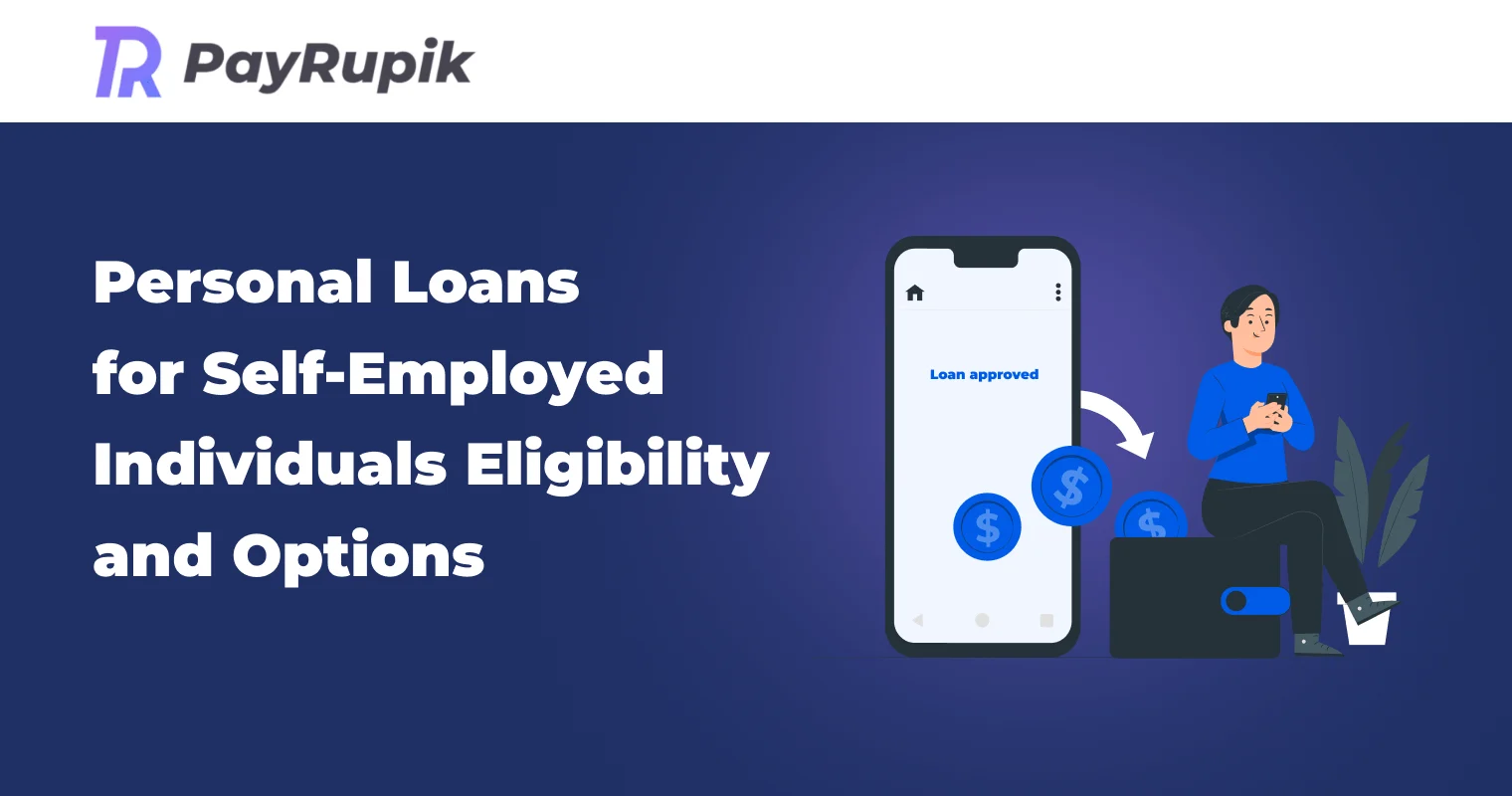Loan Approval with Low Income and High Debt: Tips That Work
- November 29, 2025

September 9, 2025
Being self-employed and trying to get a personal loan can feel like a bit of a struggle. Unlike folks with steady jobs and regular paychecks, you’ve got to face some extra hurdles. But don’t stress—personal loans for self-employed individuals are totally doable with the right prep.
In this article, we’ll break down the self-employed loan eligibility rules and loan options for self-employed individuals so you can make a smart move when borrowing money.
A personal loan is an unsecured loan aimed at various purposes, such as medical expenses, home improvement, debt consolidation, or business costs. Unlike secured loans, unsecured loans for self-employed individuals do not require collateral. However, they generally carry higher interest rates because the lender assumes greater risk.
Self-employed individuals find it harder to apply for personal loans than salaried employees. In most cases, lenders require evidence of stable incomes, good credit scores, and documents to prove repayment abilities. However, with proof of financial stability, a strong credit record, and repayment capability, personal loan eligibility for self-employed individuals becomes attainable.
Submitting the right income proof for self-employed loans is crucial to meeting these criteria.
Submitting accurate documents improves approval chances. Always check specific lender requirements before applying.
| Loan Option | Eligibility | Loan Amount & Rates | Approval Time |
|---|---|---|---|
| Traditional Banks | Strict, requires good credit and stable income | ₹50,000 to ₹20 lakhs, competitive rates | Few days to weeks |
| NBFCs | More flexible, less strict on documentation | Higher rates, suited for average credit | Quick, 24–48 hours |
| Online Lenders | Flexible, use alternative data | Small to medium loans, higher rates | Fast, within hours to days |
| P2P Lending | Flexible, good credit required | Competitive rates, higher than banks | Quick |
| Credit Unions | Lenient for members | Smaller loans, lower rates | Longer, but better terms |
Getting a personal loan as a self-employed person might seem tougher than it is for salaried folks, but it’s totally doable with the right game plan. Keep your credit score solid, have your financial docs ready, and check out different lending options.
With the right loan, you can hit your personal and business goals. Just make sure you understand the terms and pick the one that works best for you and your repayment ability.
Leave a comment